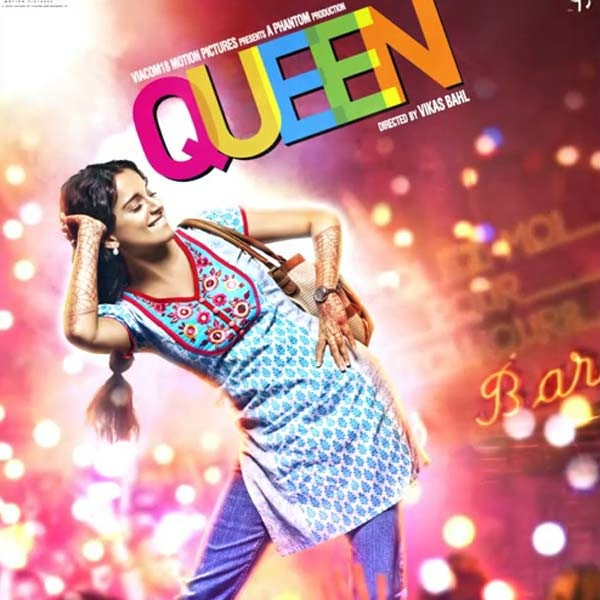That Bollywood uses its heft to sway juries and bag honours even at the National Awards is only too well-known. Since being voiced aloud after Dabangg was adjudged best popular film at the 58th National Awards in 2011, discontent has again surfaced after Vishal Bharadwaj’s Haider, a Kashmiri adaptation of Shakespeare’s Hamlet, won in five categories and Kangana Ranaut won the best actor award for Queen at the 62nd National Awards announced on Tuesday.
Several leading voices from the film fraternity have attacked what they call ‘arbitrary decisions’. “I can understand mainstream Bollywood craves this kind of recognition,” filmmaker Anant Mahadevan told dna, “But then why don’t they select subjects and their treatment in keeping with high cinematic standards set by the National Award down the years? They want it good both ways, running with hares and hunting with hounds.”
Coming down heavily on Bollywood, Mahadevan said this was not about his internationally acclaimed Gour Hari Dastan, which was in the reckoning not even finding a mention. “There was Kanu Behl’s Titli too which was completely ignored,” he pointed out and added, “They have their own gala award nights where they rarely have space for anything not mainstream. And now they want to take over this space too?”
Calling the National Awards an “exclusive recognition of serious cinema and serious filmmakers,” Mahadevan pointed out, “Only around 3,500 people have got these awards in the past 62 years. Given how one has to often struggle to find distributors and screening space for meaningful cinema, the national award is the only recognition a small filmmaker gets. If that itself is taken away from the good, for the popular, it is unacceptable.” He underlined how the jury could have split the award if it really wanted to keep the other side happy. “Its been done in the past but a complete negation of the meaningful shows the awards and the jury in poor light.”
Echoing him, a veteran auteur respected worldwide for his work, on condition of anonymity admitted that Queen should have been the Best Popular Film. “Cinematically, there was a much more impressive line-up,” he remarked.
Oscar-awardee film sound designer, sound editor and mixer Resul Pookutty of Slumdog Millionaire fame said, “Both in terms of cinematography and sound, technology’s developed a lot. Doing what was until a few years ago unthinkable with the help of this technology requires persistence and perseverance of a special kind. But the National Awards jury doesn’t have any representation of the technically adequate. Repeatedly one has petitioned for this but the panel still doesn’t include anyone with even the basic skill-set to appreciate finer tech-nuances which enhance cinematic experience.” He lamented how the screening spaces were not equipped with the latest technology to help appreciate these nuances. “When they don’t even know the kind of expertise that has gone into the film, how’ll they judge it?”
Though, Kangana Ranaut who bagged the Best Actor Award has herself underlined, “This award is a true recognition of talent, unlike TRP-driven commercial awards based on item songs, lewd jokes and affairs,” no one is able to explain how her acting chops were deemed better than actor Vinay Pathak, the toast of several international festivals for what many call his “role of a lifetime” in GHD. Pathak who had emerged as the clear favourite as Best Actor, “didn’t want to vitiate the atmosphere by saying anything negative.” Borrowing a cricketing metaphor from the India vs Australia match, he was watching he said, “When a player goes out in the field it is very hard to tell who will make a century and who will not. The National Awards are just like that.”
Multiple national and international awardee filmmaker, Jahnu Barua, raised a question mark on the selection process itself. “The main jury does not watch all the films. These are watched by regional sub-committees which have members who often don’t even understand the language or regional nuances. While this is ostensibly done to bring in a more objective approach it is counterproductive as the unsavoury controversies which follow every year’s National Awards announcements show.”
This was made clear to all present when jury chief P Bharathiraja couldn’t even read out the names of films while making the announcements on Tuesday. Repeated attempts to reach him for comment drew a blank.
Bollywood muscle-flex
1) When Muzaffar Ali’s Umrao Jaan bagged four National awards in 1981, many lamented how Rekha’s protagonist pipped Jeniffer Kapoor’s realistic Ms Stone in Aparna Sen’s 36, Chowringee Lane to grab the national award for best actor
2) In 2001, a major controversy erupted when Raveena Tandon’s less-than-underwhelming performance of a marital abuse victim in Daman and Anil Kapoor (for Pukar) won National Awards for best actor. That Raveena’s uncle Macmohan was on the jury only fanned flames more.
3) While no one had issues with Ajay Devgan’s best actor award for Zakhm (1998), celebrated auteur Adoor Gopalakrishnan protested when he was chosen again for his title role in The Legend of Bhagat Singh in 2003 because Prakash Jha, who was heading the jury, was directing Devgan in his next – Gangajal.
4) In 2005, jury member Satyami Banerjee Dev alleged fixing, when Sanjay Leela Bhansali’s Black was chosen for best film, saying it was a remake of 1962 classic The Miracle Worker. She went to court over this leading to a two-year break in the awards which resumed only in 2007.

